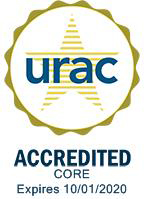What is the "ADA"
The ADA gives civil rights protections to individuals with disabilities similar to those provided to individuals on the basis of race, color, sex, national origin, age, and religion. It guarantees equal opportunity for individuals with disabilities in public accommodations, employment, transportation, state and local government services, and telecommunications.
Who does the ADA protect?
The ADA protects all individuals with a disability. An individual is considered to have a "disability" if he or she has a physical or mental impairment that substantially limits one or more major life activities, has a record of such impairment, or is regarded as having such impairment.
What employers are covered by title I of the ADA, and when is the coverage effective?
The Title I employment provisions apply to private employers, state and local governments, employment agencies, and labor unions. Employers with 15 or more employees are covered.
Who is protected from employment discrimination?
Employment discrimination is prohibited against "qualified individuals with disabilities." This includes applicants for employment and employees. Persons discriminated against because they have a known relationship or association with an individual with a disability are also protected.
Who is a "qualified individual with a disability"?
A qualified individual with a disability is a person who meets legitimate skill, experience, education, or other requirements of an employment position that s/he holds or seeks, and who can perform the "essential functions" of the position with or without reasonable accommodation.
What is discrimination based on "relationship or association" under the ADA?
The ADA prohibits discrimination based on relations or association in order to protect individuals from actions based on unfounded assumptions that their relationship to a person with a disability would affect their job performance, and from actions caused by bias or misinformation concerning certain disabilities.
Does an employer have to give preference to a qualified applicant with a disability over other applicants?
No, an employer is free to select the most qualified applicant available and to make decisions based on reasons unrelated to a disability.
What is "reasonable accommodation"?
Reasonable accommodation is any modification or adjustment to a job or the work environment that will enable a qualified applicant or employee with a disability to participate in the application process or to perform essential job functions. Reasonable accommodation also includes adjustments to assure that a qualified individual with a disability has rights and privileges in employment equal to those of employees without disabilities.
When is an employer required to make a reasonable accommodation?
An employer is only required to accommodate a "known" disability of a qualified applicant or employee.
What are the limitations on the obligation to make a reasonable accommodation?
The individual with a disability requiring the accommodation must be otherwise qualified, and the disability must be known to the employer. In addition, an employer is not required to make an accommodation if it would impose an "undue hardship" on the operation of the employer's business.
Can an employer maintain existing production/performance standards for an employee with a disability?
An employer can hold employees with disabilities to the same standards of production/performance as other similarly situated employees without disabilities for performing essential job functions, with or without reasonable accommodation. An employer also can hold employees with disabilities to the same standards of production/performance as other employees regarding marginal functions unless the disability affects the person's ability to perform those marginal functions. If the ability to perform marginal functions is affected by the disability, the employer must provide some type of reasonable accommodation such as job restructuring but may not exclude an individual with a disability who is satisfactorily performing a job's essential functions.
Can an employer consider health and safety when deciding whether to hire an applicant or retain an employee with a disability?
Yes, the ADA permits employers to establish qualification standards that will exclude individuals who pose a direct threat -- i.e., a significant risk of substantial harm -- to the health or safety of the individual or of others, if that risk cannot be eliminated or reduced below the level of a "direct threat" by reasonable accommodation. However, an employer may not simply assume that a threat exists; the employer must establish through objective, medically supportable methods that there is significant risk that substantial harm could occur in the workplace.
What financial assistance is available to employers to help them make reasonable accommodations and comply with the ADA?
A special tax credit is available to help smaller employers make accommodations required by the ADA. An eligible small business may take a tax credit of up to $5,000 per year for accommodations made to comply with the ADA. The credit is available for one-half the cost of "eligible access expenditures" that are more than $250 but less than $10,250. A full tax deduction, up to $15,000 per year, also is available to any business for expenses of removing qualified architectural or transportation barriers. Information about the tax credit and the tax deduction can be obtained from a local IRS office, or by contacting the Office of Chief Counsel, Internal Revenue Service.


